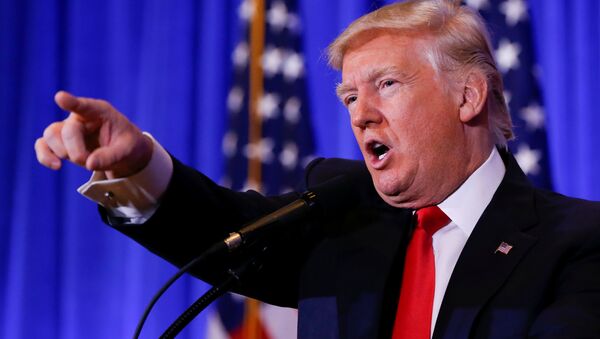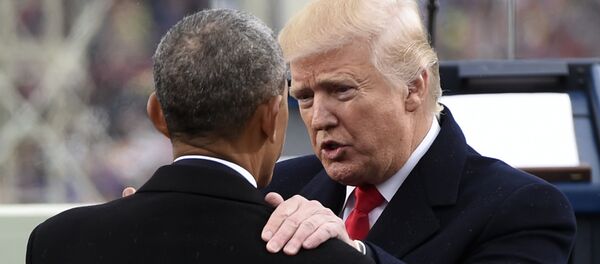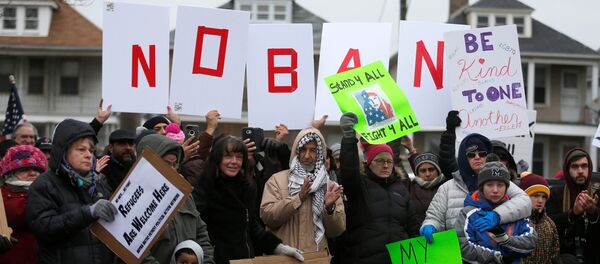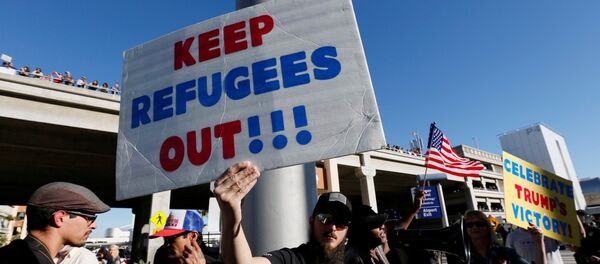On Monday, President Trump fired US Acting Attorney General Sally Yates for refusing to enforce the decision.
Responding to criticism, Trump stressed that the restrictions were about the threat of terrorism and the need to keep the US safe.
'Separating the Fact From the Hysteria'
First of all, Trump’s migration order is a document really aimed at countering the threat of terrorism and bolstering national security, according to Anatoly Tsyganok, director of the Center for Military Forecast.
"Donald Trump and his administration do not want the European migrant situation to repeat in the US. If there is just one percent of terrorists among three-four million migrants this is a national security threat. They either wait for a signal from their leader or take act on their own, just like it has recently happened in Europe," Tsyganok told RIA Novosti.
Tsyganok recalled that several years ago the Russian government realized that potential threats were arising from migrants and tightened entry rules.
"The hysterical rhetoric about President Trump’s executive order on refugees is out of control. Let’s slow down and take a look at the facts," American journalist David Fench wrote in a piece for National Review.
In a bid to "separate the fact from the hysteria," the journalist provided an explanation why the recently signed executive order is good and why its criticism is groundless.
Trump’s executive order temporarily halts refugee admission for 120 days to review the vetting process. It also caps refugee admissions at 50,000 a year. For comparison, in 2002, the US admitted 27,000 refugees, and in 2013 – nearly 70,000.
"The bottom line is that Trump is improving security screening and intends to admit refugees at close to the average rate of the 15 years before Obama’s dramatic expansion in 2016. Obama’s expansion was a departure from recent norms, not Trump’s contraction," Fench wrote.
Second, the list of "countries of concern" includes countries either "torn apart by jihadists" or controlled by "hostile, jihadist governments." Taking into account the fact that many terrorists disguise as terrorist, the journalist regard the temporary halt as "wise."
Furthermore, Fence wrote that prioritizing refugee claims from representatives of religious minorities is also good because in different countries there are different minority religions, including Christians, Muslims or Yazidis.
"Finally, you can read the entire executive order from start to finish, reread it, then read it again, and you will not find a Muslim ban. It’s not there. Nowhere," the journalist concluded.
US Immigration System is 'Broken'
Among the flaws of the US refugees vetting system, the author criticized the poorly-thought out list of "countries of concern." According to Giraldi, such countries as Saudi Arabia, Pakistan and Afghanistan should be first on the list.
All of the above is "not intended to suggest that the executive order is completely wrong-headed. The countries in question, with the exception of Sudan and Iran (included because they are, for reasons that basically make no sense, labeled state sponsors of terrorism), do indeed have major radicalization problems, as described in the State Department’s annual Country Reports on Terrorism. It is quite sensible to block travel by citizens of those countries until one can establish procedures to make sure that militants are not being admitted to the US," the article read.
"Until a broken immigration system is fixed, he is more right than wrong," Giraldi wrote.
Never miss a story again — sign up to our Telegram channel and we'll keep you up to speed!








